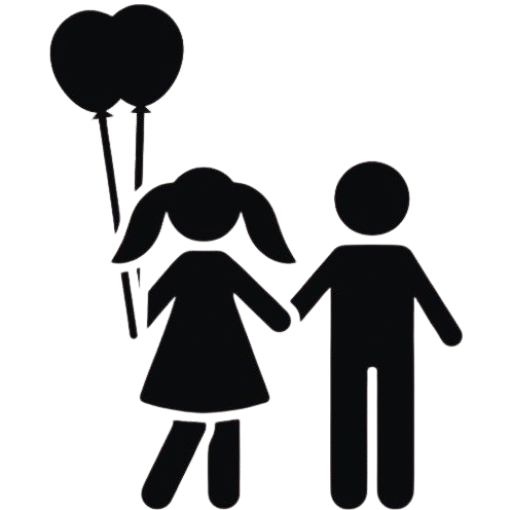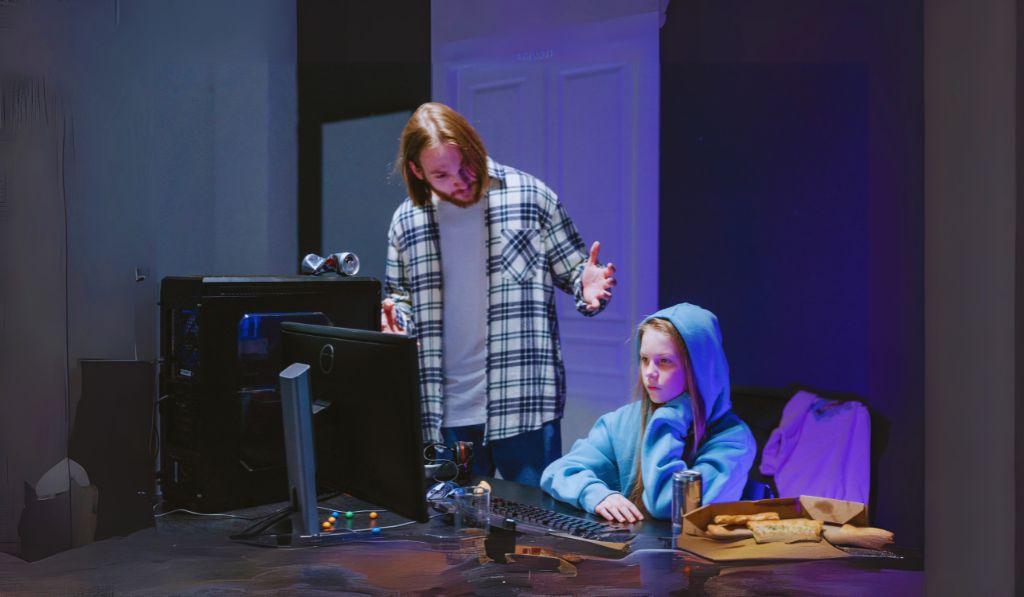Understanding the Complex Relationship Between Judicial Power and Child Welfare Agencies
As an experienced legal expert in family law and child welfare, you understand that navigating the intersection of judicial authority and Child Protective Services (CPS) may be difficult.
When families face CPS intervention, questions inevitably rise up about tests and balances in the machine.
The essential query can a decision overrule Child Protective Services? merits an intensive exam that acknowledges both the prison framework and realistic realities of child welfare cases.
The Core Question Addressed

Yes, judges own the authority to overrule CPS choices beneath specific circumstances. This judicial oversight serves as an essential check within the toddler welfare gadget, ensuring that company actions remain consistent with criminal requirements and children’s fine pastimes.
Why This Matters to You
Whether you’re representing families, running in the system, or in search of to understand your rights, greedy the dynamics between judicial authority and CPS influences the way you method those touchy instances. Understanding this courting allows ensuring proper safety for children even as safeguarding parental rights and due manners.
The Essential Functions of Child Protective Services
Child Protective Services operates as the frontline protection for prone children, tasked with investigating allegations of abuse or overlook and enforcing protective measures while important.
Primary Responsibilities of CPS
When you have interaction with CPS in your professional capacity, you’ll come across their core functions:
- investigating reviews of infant maltreatment, assessing instant safety dangers, and developing intervention plans.
- CPS caseworkers conduct home visits, interview family members and witnesses, and collect proof to determine whether kids face true threat.
CPS Decision-Making Authority
You must apprehend that CPS possesses good sized authority to make preliminary determinations regarding child safety.
These agencies can implement emergency removals when they discover immediate hazard, increase safety plans with households, and advocate court involvement whilst vital.
Their selections deliver giant weight inside the early tiers of child welfare cases.
Limitations on CPS Authority
Despite their sizable strength, you have to apprehend that CPS businesses perform inside defined criminal limitations.
They ought to adhere to constitutional protections, country laws governing toddler welfare, and procedural requirements.
These boundaries create opportunities for judicial evaluation whilst CPS doubtlessly oversteps its authority.
Judicial Power: The Court’s Role in Child Welfare
The judicial branch serves as the final authority in deciphering and applying baby welfare laws, supplying crucial oversight of administrative companies like CPS.
The Judge’s Fundamental Authority
When you appear before a family court docket in toddler welfare lawsuits, you are enticing with a respectable person who possesses the constitutional authority to interpret legal guidelines, evaluate evidence, and make binding determinations.
This judicial electricity extends to reviewing and doubtlessly overturning enterprise decisions while warranted.
Judicial Review of Administrative Actions

You ought to apprehend that courts mechanically evaluate administrative agency selections across many domain names, inclusive of toddler welfare.
This assessment function ensures businesses like CPS workout their authority appropriately and in compliance with criminal standards.
Judges assess whether or not organization actions align with statutory requirements and constitutional protections.
Courts as Ultimate Arbiters
When disagreements arise among households and CPS, you will locate that courts serve as the very last decision-makers in contested child welfare matters.
Judges compare competing claims, weigh evidence according to legal standards, and render decisions that prioritize the kid’s satisfactory pursuits while respecting felony rights.
When Can a Judge Overrule CPS Decisions?
Several specific circumstances may additionally lead a courtroom to overturn or adjust CPS determinations, creating vital possibilities for challenging employer moves you trust are wrong or unjustified.
Due Process Violations
When CPS fails to provide adequate notice of lawsuits or denies meaningful possibilities to be heard, you could be seeking judicial intervention based totally on due manner violations. Courts take these constitutional protections severely and may overrule CPS choices that resulted from procedurally poor approaches.
For example, if CPS removed youngsters without imparting parents proper observation of allegations or possibility to respond, a judge might also find this violates due technique rights and order the children’s return pending proper proceedings.
Insufficient Evidence Supporting CPS Actions
- You can mission CPS selections while the proof doesn’t meet the legal trend required for the action taken.
- Courts require extensive evidence for interventions that have an effect on essential family rights.
- When reviewing proof, judges follow particular felony standards ranging from reasonable suspicion for preliminary investigations to clean and convincing proof for terminating parental rights.
- If CPS hasn’t met the applicable preferred, courts will overrule the employer’s determination.
Failure to Follow Statutory Requirements
- Child welfare businesses have to operate within the framework of kingdom and federal legal guidelines governing baby safety.
- When you discover times in which CPS has not adhered to statutory necessities, you have got grounds to request judicial correction.
- This may encompass CPS failing to make reasonable efforts to prevent elimination as required by regulation, not following mandated timelines for case complaints, or neglecting to provide required offerings before pursuing termination of parental rights.
Best Interests of the Child Determinations
- Perhaps most importantly, courts can overrule CPS when judges decide that business enterprise hints do not serve kid’s high-quality pursuits.
- While CPS tests receive attention, judges make impartial reviews of what preparations satisfactory serve children’s welfare.
- This may arise while CPS recommends continued foster placement, however a decision determines that returning kids to parental care with appropriate safeguards better serves their needs.
The Legal Process for Challenging CPS Decisions
Understanding the procedural mechanisms for contesting CPS moves helps you navigate the system efficiently while searching for judicial evaluation.
Filing the Appropriate Legal Motion
To initiate judicial review of CPS selections, you should document the proper prison record—usually a movement soliciting for particular relief. Depending on the case posture, this could encompass:
- Motions to push aside dependency petitions
- Requests for instant return of youngsters
- Motions to regulate transient custody arrangements
- Appeals of administrative findings
- The precise movement depends at the case level and the unique CPS action being challenged.
Burden of Proof Considerations
- When challenging CPS choices, you ought to understand where the weight of proof lies.
- In preliminary elimination hearings, CPS typically bears the weight of demonstrating that removal is vital for infant safety.
- In later complaints of difficult company findings, the burden can also shift relying on country law and procedural posture.
- Understanding those burden allocations allows you to broaden suitable felony techniques whilst contesting corporation determinations.
Evidentiary Hearings and Judicial Fact-Finding
Courts commonly conduct evidentiary hearings to remedy disputed facts in contested child welfare matters.
During those proceedings, you’ll give proof through witness testimony, documentation, and professional reviews to aid your position towards CPS hints.
Judges then make genuine determinations based on the proof provided, making use of applicable legal standards to decide whether or not CPS movements should stand or be overruled.
Real-World Scenarios: When Courts Typically Overrule CPS

Examining common conditions where judicial intervention happens enables you to identify probably a hit demanding situations to CPS determinations.
Procedurally Deficient Investigations
Courts frequently overrule CPS while investigations fail to fulfill professional requirements or procedural necessities. You would possibly correctly venture CPS choices as a consequence of:
- Investigations that relied on unreliable Rumohr without corroboration
- Failure to interview key witnesses or circle of relatives members
- Biased investigative tactics that ignored exculpatory evidence
- Investigations performed via improperly trained employees
- When you could show procedural deficiencies, judges may cut prices or absolutely reject CPS findings.
Unnecessarily Extreme Interventions
- You’ll find that courts occasionally overrule CPS while the employer pursues interventions more intense than necessary to shield kids.
- Judges practice the “least restrictive opportunity” principle, requiring infant welfare companies to enforce the least intrusive intervention that thoroughly protects kids.
- If CPS recommends eliminating kids when safety plans or in-home services would sufficiently address issues, courts may additionally overrule elimination hints.
Ignoring Family Support Systems
Judges often overrule CPS whilst businesses overlook feasible circle of relatives placement options in favor of foster care.
Federal and national legal guidelines prioritize placement with relatives whilst viable, and courts regularly intervene whilst CPS fails to adequately explore kinship care options.
When you could discover a suitable circle of relatives members willing to offer care, you have got strong grounds to request judicial change of CPS placement decisions.
Culturally Insensitive Determinations
- Courts more and more apprehend that cultural differences in infant-rearing practices don’t necessarily represent abuse or neglect.
- When CPS movements stem from cultural misunderstandings in place of true safety worries, judges may interfere.
- You can venture CPS determinations by means of demonstrating that the company misinterpreted culturally precise practices as maltreatment whilst these practices don’t without a doubt damage kids.
Balancing Child Protection with Family Preservation
The anxiety among child protection and family integrity creates complex challenges that courts need to navigate whilst reviewing CPS actions.
The Legal Presumption Favoring Family Unity
Both constitutional standards and statutory frameworks establish a presumption that children belong with their households while secure.
- You have to emphasize this criminal presumption when hard needless CPS interventions.
- Courts recognize parents’ essential liberty in raising their youngsters without authorities interference.
- This constitutional principle requires judges to carefully scrutinize nation interventions inside the family.
Safety because the Paramount Concern
- Despite the presumption favoring family unity, you must understand that courts continually prioritize baby protection mainly with different considerations.
- Successful demanding situations to CPS typically exhibit that organization concerns may be addressed even as maintaining a circle of relatives connections.
- When you may present proof displaying that children can remain secure with dad and mom or household, probably with appropriate offerings and safeguards, you position your case favorably for judicial intervention.
READ ALSO : False CPS Reports: Understanding the Consequences and Legal Implications
The Harm of Unnecessary Removal
- Courts an increasing number of renowned the trauma youngsters enjoy from family separation.
- This popularity has led many judges to more significantly have a look at whether CPS removals surely serve kid’s pursuits.
- When challenging removals, you must present evidence regarding attachment disruption, psychological influences, and academic outcomes of own family separation to assist courts weigh these elements in opposition to alleged protection concerns.
Preparing Effective Legal Challenges to CPS Determinations
Success in contesting CPS selections calls for thorough preparation and strategic presentation of your case.
Comprehensive Evidence Collection

To successfully mission CPS determinations, you have to collect comprehensive proof addressing each factual and procedural troubles. This usually consists of:
- Medical data disproving allegations of bodily abuse
- Educational statistics showing regular attendance and appropriate care
- Documentation of offerings mother and father have completed
- Witness statements contradicting CPS allegations
- Expert reviews demonstrating parental ability
- The strength of your undertaking often depends on the best and comprehensiveness of your evidence.
Utilizing Expert Witnesses Effectively
Expert testimony frequently proved decisive in contested child welfare topics. You must don’t forget engaging appropriate professionals to assess specific elements of your case:
- Medical experts to interpret injuries or conditions
- Child development professionals to assess parent-child interactions
- Cultural competency experts to explain culturally particular practices
- Mental health specialists to assess parental ability
- Credible professional testimony can significantly influence judicial evaluation of CPS determinations.
Focusing on Statutory Requirements
Successful challenges frequently spotlight particular statutory necessities that CPS failed to meet. You should very well overview applicable state laws governing:
- Required timelines for diverse complaints
- Reasonable efforts obligations before elimination
- Family engagement necessities
- Kinship placement prioritization
- Service provision mandates
- Identifying precise statutory violations strengthens your argument for judicial intervention.
- Long-Term Implications of Judicial Oversight
- The dating among courts and toddler welfare businesses creates systemic outcomes that enlarge beyond individual cases.
Enhancing CPS Accountability
Judicial willingness to overrule CPS choices promotes employer duty and improves practice. When you efficiently task beside the point organization moves, you make contributions to systemic development by means of setting up expectancies for correct exercise.
Courts’ oversight function encourages CPS corporations to conduct extra thorough investigations, take into account much less restrictive alternatives, and cling extra closely to procedural necessities.
Creating Precedent for Future Cases
- Significant judicial decisions overruling CPS once in a while set up precedents that advantage many families.
- These precedents make clear legal requirements and agency responsibilities, probably preventing comparable issues in future instances.
- By pursuing principled demanding situations to complicated CPS practices, you assist in expanding case law that protects family rights at the same time as making sure appropriate infant protection.
Promoting Balanced Child Welfare Approaches

- The anxiety between courts and child welfare businesses in the long run promotes a more balanced technique to toddler protection.
- This dynamic allows certain infant welfare systems to protect children from authentic damage while respecting family integrity each time feasible.
- Your advocacy in these cases contributes to preserving this crucial balance inside the infant welfare system.
Conclusion: Navigating the Complexity of Child Welfare Law
The query of whether a decision can overrule Child Protective Services displays the complex balance among administrative authority and judicial oversight in child welfare topics.
As you have seen, courts certainly have the authority to overrule CPS selections underneath specific circumstances when due procedure rights are violated, evidence proves insufficient, statutory requirements are not met, or kid’s fine pursuits demand an exclusive approach.
This judicial test on administrative strength serves the critical function of making sure that toddler safety efforts remain each powerful in safeguarding children and respectful of essential own family rights.
By informing the prison framework governing these relationships, you are better ready to navigate these difficult instances and endorse correctly whether you represent households, paintings inside the machine, or searching to improve baby welfare practice.
The final purpose shared through courts and child welfare organizations stays protecting children while keeping households whenever safely possible.
When judicial oversight functions well, it allows child welfare interventions to reap this balanced objective.
Read also: Understanding Maternal Abandonment: How to Heal from a Mother’s Absence



